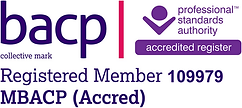Experiencing a miscarriage is a heart-breaking and deeply personal event. The emotional toll is profound, but many people are also surprised by the physical changes their bodies go through after the loss. These changes are an important part of the healing process, but they can sometimes feel overwhelming or confusing.
This blog offers a guide to understanding what happens to your body after a miscarriage and how you can support yourself through the physical and emotional recovery.
The Physical Aftermath of Miscarriage
After a miscarriage, the body undergoes several changes as it recovers from pregnancy. The physical effects vary depending on how far along the pregnancy was and individual factors, but here are some common changes and symptoms to expect:
- Bleeding and Cramping
After a miscarriage, the uterus needs to shed the tissue and blood from the pregnancy. This usually results in bleeding that can last for several days to a few weeks, similar to a heavy period. You may also experience cramping as the uterus contracts to expel the remaining tissue. For early miscarriages, this process can feel like an intense period, while for later losses, it may be more painful and prolonged. - Hormonal Changes
Pregnancy hormones begin to drop after a miscarriage, but it can take several weeks for your body to return to its pre-pregnancy hormonal state. You may experience symptoms similar to postpartum changes, including mood swings, breast tenderness, or even milk production if the pregnancy was later in term. These fluctuations in hormones can lead to emotional ups and downs, which is completely normal during this time. - Fatigue and Weakness
The physical process of miscarriage can leave you feeling fatigued and weak. The loss of blood, emotional stress, and hormonal changes all contribute to feelings of exhaustion. It’s important to rest and allow your body time to recover. Overexerting yourself too soon can delay healing. - Breast Changes
After a miscarriage, especially later in pregnancy, you may notice changes in your breasts. They may become engorged or leak milk, which can be a painful reminder of the loss. These changes will gradually subside as your hormone levels adjust, but it can be emotionally and physically challenging in the meantime. - Return of Menstrual Cycle
It may take anywhere from 4 to 6 weeks for your menstrual cycle to return after a miscarriage. Some women experience their first period as heavier or lighter than usual, while others find it takes a few cycles for things to feel “normal” again. This return to your regular cycle is a sign that your body is healing, but it can also stir up emotions, reminding you of the pregnancy that was lost. - Infections
While rare, it’s important to monitor for signs of infection after a miscarriage. Symptoms of infection include fever, foul-smelling discharge, or severe pain. If you experience any of these symptoms, contact your healthcare provider immediately. Infections can occur if not all pregnancy tissue is expelled from the uterus, requiring medical treatment.
Emotional and Psychological Impact
While your body is recovering physically, the emotional aftermath of miscarriage can be equally intense. Many people find that the physical symptoms, like bleeding and cramping, serve as constant reminders of the loss, making the emotional healing process even more challenging.
- Grief and Sadness
After a miscarriage, it’s natural to feel a deep sense of grief and sadness. The loss of a pregnancy often represents the loss of hopes, dreams, and plans for the future. It’s important to allow yourself to mourn the loss, whether it was early in the pregnancy or later. Grief doesn’t follow a timeline, and it’s okay to feel sad for as long as you need to. - Hormonal Mood Swings
The drop in pregnancy hormones can contribute to emotional highs and lows. You may find yourself feeling tearful, irritable, or overwhelmed by seemingly small things. These mood swings are a normal part of the hormonal adjustment after miscarriage, but they can be difficult to cope with, especially on top of the emotional grief. - Feelings of Guilt or Self-Blame
Many people experience feelings of guilt or self-blame after a miscarriage, wondering if they could have done something differently. It’s important to remember that most miscarriages are due to genetic or chromosomal issues that are beyond your control. Miscarriage is common, and it’s rarely the result of anything you did or didn’t do. - Anxiety About Future Pregnancies
If you’re planning to try for another pregnancy in the future, it’s normal to feel anxious or worried about the possibility of another miscarriage. This anxiety is a natural response to loss, but it can be helpful to talk to a healthcare provider about your concerns. They can provide reassurance, support, and information about next steps when you feel ready.
How to Care for Your Body After Miscarriage
Caring for yourself physically and emotionally after a miscarriage is an important part of the healing process. Here are some ways to support your recovery:
- Rest
Give your body time to heal. Rest as much as possible, and avoid strenuous activity until your bleeding and cramping have subsided. Your body has been through a lot, and pushing yourself too hard can delay recovery. - Eat Nourishing Foods
Focus on nourishing your body with healthy, balanced meals. Iron-rich foods like leafy greens, beans, and lean meats can help replenish the blood loss, and plenty of hydration will support your overall healing. - Monitor Your Symptoms
Keep track of your symptoms and contact your healthcare provider if you experience anything unusual, like prolonged heavy bleeding, severe pain, or signs of infection. Don’t hesitate to seek medical care if something doesn’t feel right. - Seek Emotional Support
The emotional toll of miscarriage can be heavy. It’s important to reach out to loved ones, friends, or a support group to talk about your feelings. If you’re struggling to cope with your emotions, consider seeking professional counseling or therapy to help process the grief. - Allow Yourself Time to Heal
Everyone heals at their own pace, both physically and emotionally. Give yourself permission to take the time you need to recover, and don’t feel pressured to “move on” before you’re ready. The loss of a pregnancy is a significant event, and healing takes time.
When to Seek Medical Help
While most people recover physically from miscarriage without complications, there are some signs that may indicate you need medical attention. Contact your healthcare provider if you experience:
- Heavy bleeding (soaking more than one pad per hour for more than two hours)
- Fever or chills
- Severe pain or cramping that isn’t relieved by over-the-counter medication
- Foul-smelling vaginal discharge
- Signs of depression or anxiety that persist beyond a few weeks
Moving Forward with Care and Compassion
Miscarriage is a deeply emotional experience that affects both the body and the mind. The physical changes your body goes through after a loss can feel like a constant reminder of the pregnancy, making it hard to separate the physical healing from the emotional grief. By caring for yourself—physically, mentally, and emotionally—you can give yourself the space and time you need to heal.
Remember that you don’t have to go through this alone. Reach out to your support network, seek professional help if needed, and be kind to yourself as you navigate the road to recovery. Your body and heart have been through a great deal, and both deserve care and compassion.
You can access miscarriage information at Tommy’s here.






